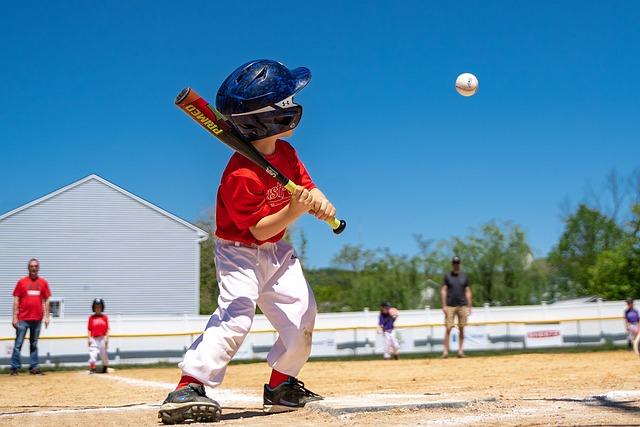Visa Refusals Prevent Venezuelan Youth Baseball Team from Competing in U.S. Tournament
A Venezuelan youth baseball squad was recently barred from entering the United States after their visa applications were rejected, halting their participation in the forthcoming Little League tournament. Little League International confirmed that these denials are linked to escalating geopolitical strains, leaving the young athletes and their families profoundly disappointed. Despite meeting all eligibility criteria and exemplifying outstanding sportsmanship, the team was unable to secure travel authorization, illustrating how international politics can directly impact youth sports opportunities.
Sports advocates and officials are urging a reassessment of visa policies that inadvertently penalize young athletes caught in diplomatic crossfires. The primary concerns raised include:
- Developmental setbacks: Visa refusals interrupt crucial cultural and athletic exchanges that foster growth and skill enhancement among youth players.
- Competitive imbalance: The absence of the Venezuelan team alters the tournament’s competitive landscape, potentially disadvantaging other participants.
- Community hardship: Families and local supporters face emotional distress and financial burdens due to sudden changes in plans.
Discussions are underway to explore alternative arrangements, such as regional competitions or neutral venues, to uphold the spirit of international sportsmanship despite political challenges.
Wider Ramifications of Visa Rejections on Global Youth Sports
The refusal of visas to youth sports teams carries significant consequences that extend well beyond the immediate participants. For Venezuelan baseball players, missing out on U.S.-based tournaments like the Little League International event represents a major obstacle to their athletic progression and international visibility. Such events are vital for talent identification, intercultural dialog, and building lifelong connections. Blocking access not only curtails the athletes’ ability to demonstrate their abilities but also disrupts community-driven sports initiatives that promote resilience and unity in challenging social environments.
The ripple effects of these visa denials impact a broad spectrum of stakeholders and undermine the ethos of global sportsmanship. Key repercussions include:
- Lost growth opportunities: Young athletes miss essential experiences that contribute to their advancement and recognition.
- Financial setbacks: Teams and organizers suffer monetary losses from non-refundable expenses related to travel and training.
- Diplomatic and cultural damage: The principles of international goodwill and mutual respect fostered through sports are weakened.
- Decline in youth participation: Disappointment may discourage future involvement in sports programs.
These challenges highlight the urgent need for more compassionate and efficient visa procedures to preserve the inclusivity and integrity of international youth sporting events.
| Affected Group | Consequences |
|---|---|
| Athletes | Missed opportunities for competition and skill advancement |
| Sports Organizations | Financial losses and reduced program credibility |
| Host Communities | Diminished cultural exchange and economic benefits |
| International Relations | Erosion of diplomatic goodwill and cooperation |
Little League International Advocates for Updated Visa Regulations to Enhance Inclusivity
Little League International has publicly called for a complete overhaul of visa policies following the recent rejection of the Venezuelan team’s applications. The team was slated to compete in a major U.S. tournament but was prevented from doing so due to immigration hurdles. This incident has sparked debate about the accessibility and fairness of international youth sports events held in the United States, prompting demands for clearer, more inclusive guidelines that support athletes nonetheless of their nationality.
Proponents stress that participation in such tournaments is crucial for fostering cultural understanding and nurturing young talent. The organization recommends reforms focusing on:
- Accelerated visa processing for international sports delegations
- Improved coordination between sports organizations and government agencies
- Policies that balance security concerns with the imperative of sporting inclusion
| Challenge | Suggested Solution |
|---|---|
| Delays in visa approval | Implement priority processing for official sports teams |
| Insufficient inter-agency interaction | Create liaison units between Little League and immigration authorities |
| Lack of policy clarity | Publish obvious guidelines outlining criteria for athlete inclusion |
Strategies for U.S. Authorities to Strengthen Sports Diplomacy and Cultural Exchange
To promote effective sports diplomacy and ensure meaningful cultural exchanges, U.S. officials should consider adopting specialized visa procedures designed specifically for international youth sports teams. Such measures would expedite approvals and reduce bureaucratic obstacles that currently impede participation in global competitions. Establishing a dedicated liaison office within the Department of State or Department of Homeland Security could facilitate direct dialogue between sports organizations and visa authorities, enhancing clarity and expediting issue resolution.
Additional recommendations include:
- Priority request processing: Assign expedited status to visa requests from recognized sports delegations during peak tournament seasons.
- Pre-arrival cultural orientation: Organize workshops to prepare athletes and their families for U.S. cultural norms and regulatory expectations.
- International collaboration: Partner with global sports federations to develop standardized visa application templates, simplifying documentation requirements.
| Initiative | Expected Benefit |
|---|---|
| Specialized Visa Protocols | Accelerated approvals and reduced administrative delays |
| Dedicated Liaison Office | Enhanced communication and transparency between agencies and sports bodies |
| Priority Processing for Sports Delegations | Ensures timely participation in international competitions |
| Cultural Orientation Workshops | Improves cultural integration and compliance with U.S. regulations |
Conclusion: Reflecting on the Challenges of Visa Denials in International Youth Sports
The recent visa refusals faced by the Venezuelan youth baseball team highlight persistent obstacles confronting young international athletes striving to compete on the world stage. As Little League International continues to evaluate this situation, momentum is building for clearer, more equitable visa policies and diplomatic efforts that prioritize sporting inclusion. This episode not only deprives talented players of valuable competitive opportunities but also raises critical questions about fairness and accessibility in global sports. Updates will follow as developments unfold.




